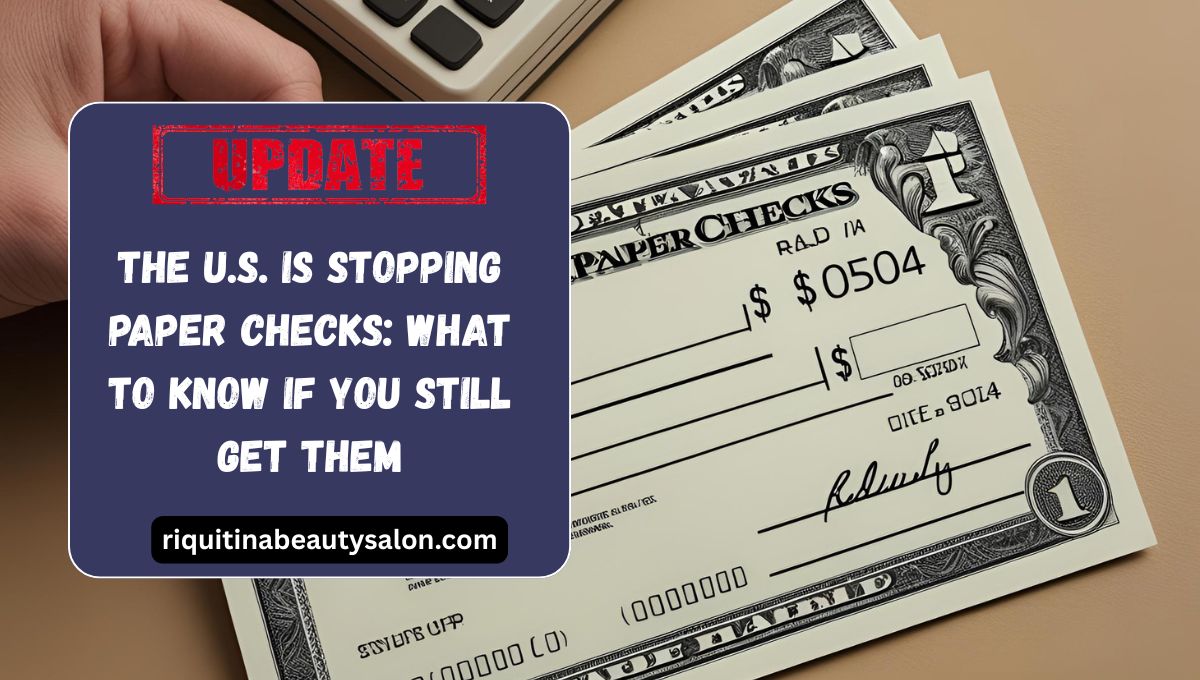In less than four months, the U.S. government plans to stop sending out paper checks for Social Security and other payments. Instead, all payments will go through electronic funds transfer (EFT), like direct deposits into bank accounts. This change was ordered by President Donald Trump, and it aims to make payments safer and faster.
Most people who get Social Security checks already have them deposited directly into their bank accounts. But about 485,000 people still receive paper checks each month. Even though this change can help prevent fraud, it might feel like a big adjustment for many people.
Why Are Paper Checks Being Stopped?
One big reason is that paper checks are easy to steal from mailboxes. Thieves use something called “check-washing” to erase the payee’s name and amount on a check, then write in their own. Because Social Security checks often arrive at the same time every month to the same people, scammers know exactly when to steal them.
It’s a serious problem. The Federal Reserve says that check fraud is the second-biggest way money gets stolen—hundreds of millions of dollars every year! Once someone steals your check, it can take days (or longer) to clear, and by then it might be too late to fix the problem.
Haywood Talcove, CEO of LexisNexis Risk Solutions, says it’s simply safer to have money deposited straight into your bank account instead of relying on paper checks.
Real-Life Stories of Check Theft
Unfortunately, it’s not just strangers who are stealing checks. Even postal workers have been caught. For example, one postal worker was found guilty of stealing nearly 100 checks worth $1.6 million. Last year, two postal workers were charged with taking Treasury checks worth more than $4 million.
It’s also risky to leave checks in your mailbox overnight or put them in blue mailboxes after the day’s last pickup, according to the FBI and the U.S. Postal Inspection Service.
Challenges Some People Might Face
More than 68 million people already get their Social Security payments as direct deposits. But the 485,000 people who still get paper checks are usually older, don’t have a bank account, or don’t have reliable internet access. This change might be tough for them.
The government says they’ll help people who can’t use electronic payments or who need special payments during emergencies. But some Social Security offices have closed or reduced staff, making it harder for people to get the help they need.
What You Can Do
If you still get a paper check, there are things you can do to stay safe and get your money on time. USPS Informed Delivery is a free service that lets you see what mail is coming each day. That way, you can keep an eye out for your check and get it before anyone else.
You can also set up alerts on your bank account. These will let you know when money is deposited or taken out, so you can spot any problems right away.
Haywood Talcove says, “I know that for some older people, any change is hard. But if your check gets stolen, it’s even harder. You have to fill out forms, file a police report, and fight to get your money back.”
Paper Checks vs. Direct Deposit
Here’s a simple table that shows why electronic payments are safer and easier:
| Feature | Paper Checks | Direct Deposit |
|---|---|---|
| Security | Easy to steal, hard to track | Safer, direct transfer to bank |
| Time to get payment | Can take days to clear | Usually instant |
| Risk of fraud | High | Very low |
| Convenience | Must pick up, can get lost | Goes straight to your account |
| Notifications | None | Can set up text/email alerts |
Conclusion
The change from paper checks to electronic payments for Social Security is meant to make payments safer and faster. While it might feel overwhelming for some, taking steps like setting up direct deposit, signing up for USPS Informed Delivery, and adding bank alerts can make the switch easier.
Remember, this change helps keep your money safe from scammers, so you can spend more time enjoying life and less time worrying about stolen checks.
FAQ’s
Q1: When will the government stop sending paper checks?
A1: The government plans to stop sending paper checks for Social Security and other payments in less than four months.
Q2: Why is the government making this change?
A2: To prevent scams and make payments safer and faster by using electronic transfers instead of paper checks.
Q3: What should I do if I still get a paper check?
A3: Sign up for direct deposit with your bank, use USPS Informed Delivery, and set up bank alerts to track payments.
